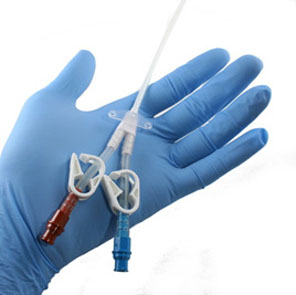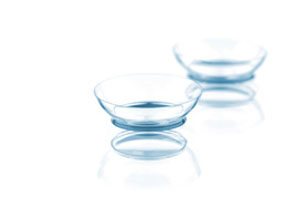Lubricious and Infection Resistant SurfacesBiomaterial exposure to the in vivo environment results in the immediate adsorption of proteins, lipids and other components found in the blood. This layer of adsorbed molecules direct and signal the subsequent cascade of events that constitute the foreign body response (FBR) that can lead to chronic inflammation and encapsulation of the material and, in many applications device rejection and failure This phenomenon is commonly referred to as biofouling. Ension’s core capabilities include surface modification techniques to render substrates lubricious, non-adsorptive, and non-fouling with particular expertise with contact lenses, silicone dialysis catheters, stents, and cannulas and vascular prostheses. The non-fouling surfaces can be modified to release anti-microbial agents in a controlled manner to prevent infection and biofilm formation. |
|



